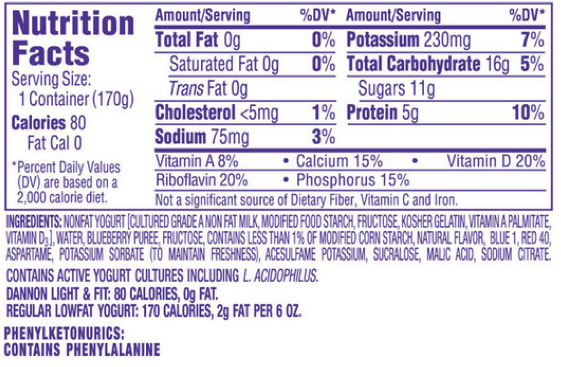Sugar and Leaky Gut
I feel like the media and big food businesses are trying to get us addicted to sugar… We all seem to be on these constant highs and lows of eating sugar, sometimes without our knowledge. Do you crave sugar and can’t seem to beat it?
Our western diet is linked to our gut issues, including having too much bad bacteria, not enough good bacteria, and chronic gut inflammation. (1)
As it turns out, your sugar cravings may be the result of your leaky gut. A diet high in refined sugars is one of the main culprits in leaky gut (along with gluten). Simply removing these triggers can have enormous benefits.
Studies Show That Bad Bacteria Feed on Sugar
Our western diet, high in sugar and unhealthy fats, encourages harmful bacteria to flourish in our gut while simultaneously suppressing good bacteria. This is referred to as “dysbiosis.” Dysbiosis is the overabundance of bad bacteria, an under-abundance of good bacteria, or when the living microbes are not where we need them to be – as seen in SIBO(Small Intestinal Bacterial Overgrowth).
Fructose is naturally found in honey, fruits such as apples, peaches, pears and oranges but it is also the main ingredient in sweeteners that can be responsible for bloating, pain and GI symptoms. Click To TweetTo help kick your sugar cravings:
- Don’t Drink Your Calories – Sports drinks are prime suspects in the sugar addiction. There can be up to 60 grams (12 teaspoons) of sugar in some of these “power” drinks. Because it is in liquid form, this sugar goes straight to your liver, where it will turn into dreaded belly fat.
- Power Up The Protein – I cannot say this enough… Protein, protein, protein! Ideally, you’ll have healthy protein at each meal (especially breakfast) to balance your blood sugar levels for the day. Protein provides satiation, so you won’t crave sugar mid morning. It is the key to balancing blood sugar and insulin. I recommend 4-6 ounces per meal for women; 6-8 ounces per meal for men.
- Full On With Healthy Fats – Fat does not make you fat, sugar does. Fat provides satiation (along with protein) and is necessary for brain functioning, hormonal production, cell growth, and development. Specifically, the correct proportion of omega-3 and omeg-6 fatty acids are critical for regulating mood, digestion, and hormones. Sources include nuts, seeds, olive oil, coconut oil, avocados, and flaxseeds. I recommend 2 TBS per meal
- Greens Galore – Unlimited refills on vegetables! They are a great source of fiber, vitamins, minerals, and antioxidants – and can serve as anti-inflammatory agents. I recommend 2-4 cups per meal and ½ cup fruit per day.
Reading Labels
How much sugar are you eating? On average, Americans consume over 32 teaspoons of sugar a day. The American Heart Association recommends women consume no more than 6 teaspoons a day, and men no more than 9 teaspoons a day. The World Health Organization advises that sugar should represent no more than 5% of your daily intake – or 6-9 teaspoons a day.
So, where is all the sugar coming from? When looked a little bit closer, the foods we think are deemed “healthy” are actually high in sugar. These sugars include glucose, lactose, maltose, and fructose in all their forms.
- Ingredients: First look at the ingredients. Look to see if sugar is one of the first five ingredients, or disguised as some of the sugars we have talked about.
- Serving Size: Look at the serving size at the top of the nutrition label. The amount of sugar can be quite large compared to the serving size. For example, in a bottle of PowerAde, there can be 30 grams of sugar in 1 serving, but the bottle has 2 servings. You are then drinking 60 grams of sugar.
- Sugar: Look at the sugars. 1 teaspoon = 4 grams of sugar. If a serving size of cereal has 30g of sugar, you would divide by 4 to find the number of teaspoons – the total would be 7 teaspoons of sugar in just one serving!
The label below for a Dannon yogurt has 11 grams of sugar in one serving, which will equal about 3 teaspoons of sugar. That’s half of your recommended daily amount in just one sitting! The World Health Organization recommends no more than 6 teaspoons of sugar or 25 grams per day.

In addition to removing gluten, dairy, and refined oils, we are also going to remove these hidden sugars and replace them with fruits, vegetables, and grains.
Is Fructose Causing Your Gut To Rebel?
Fructose is naturally found in honey, fruits such as apples, peaches, pears and oranges but it is also the main ingredient in sweeteners that can be responsible for bloating, pain and GI symptoms. It is the main ingredient in high fructose corn syrup (HFCS) and is used in sodas, juices, condiments, snacks and other processed foods. In these highly processed foods and drinks, fructose acts as a sweetener that provides calories, often without any nutritional value. In the 1970”s, the “fat is bad” mantra prompted a shift in the American diet. People were not longer eating fat, often the healthy fat and companies replaced the loss of flavor with sugar and always refined sugar.
Fructose is metabolized differently than other carbohydrates and turns to fat much faster. Fructose is broken down by the liver and then serves as the backbone for glycerol (a sugar alcohol) then converts free fatty acids into fat. So the more fructose you eat will equal the amount of fat that you store.
Our western diet, high in sugar and unhealthy fats, encourages harmful bacteria to flourish in our gut while simultaneously suppressing good bacteria. This is referred to as “dysbiosis.”
Fructose intolerance is a highly under diagnosed and unrecognized issue today People with fructose intolerance can suffer from gas and bloating. Another effect of high fructose in your diet is the development of insulin resistance, which is a precursor to diabetes. Insulin resistance occurs when there are continuously high levels of sugar in the diet and eventually the muscle cells become resistant to the signal that insulin sends for them to accept glucose. The glucose does not enter the muscles cells but remains in the blood stream causing high blood sugar levels.
Simply put, your gut doesn’t like processed sugar. It’s tough to process, related to all kinds of health problems (including leaky gut and depression), and unfortunately, it’s all around us. It takes some effort, but you can protect your body from refined sugar by taking control of your diet, learning to read labels carefully, and building the good habits of GUTLOVE!

![]()



